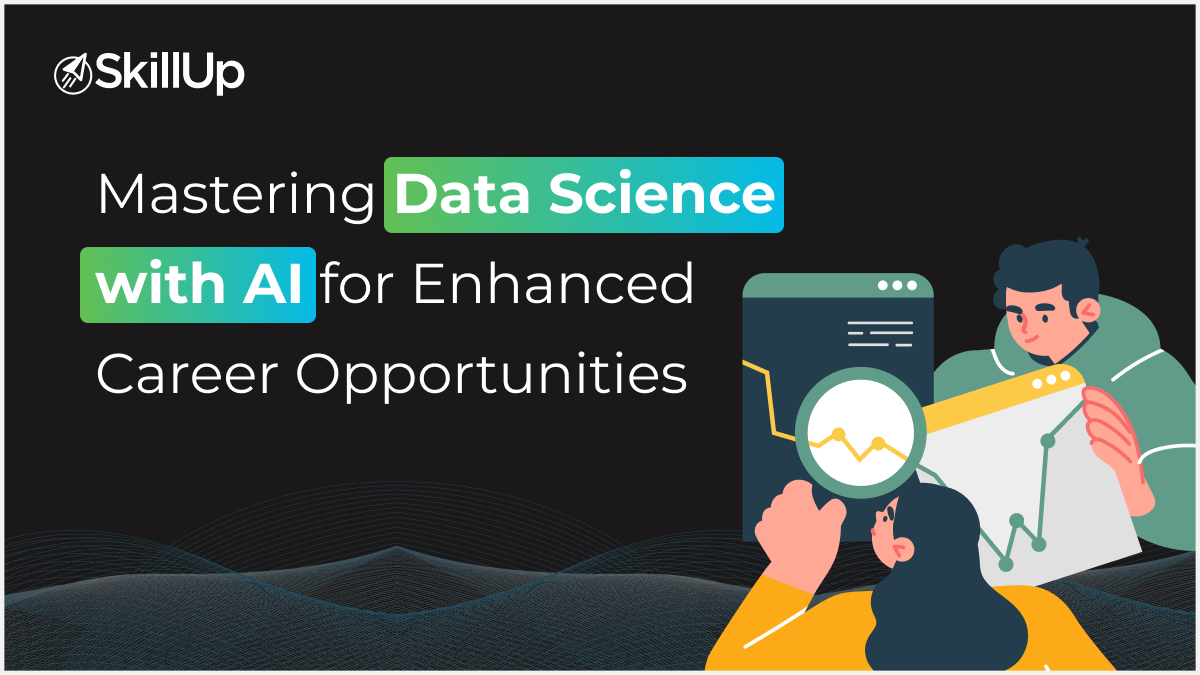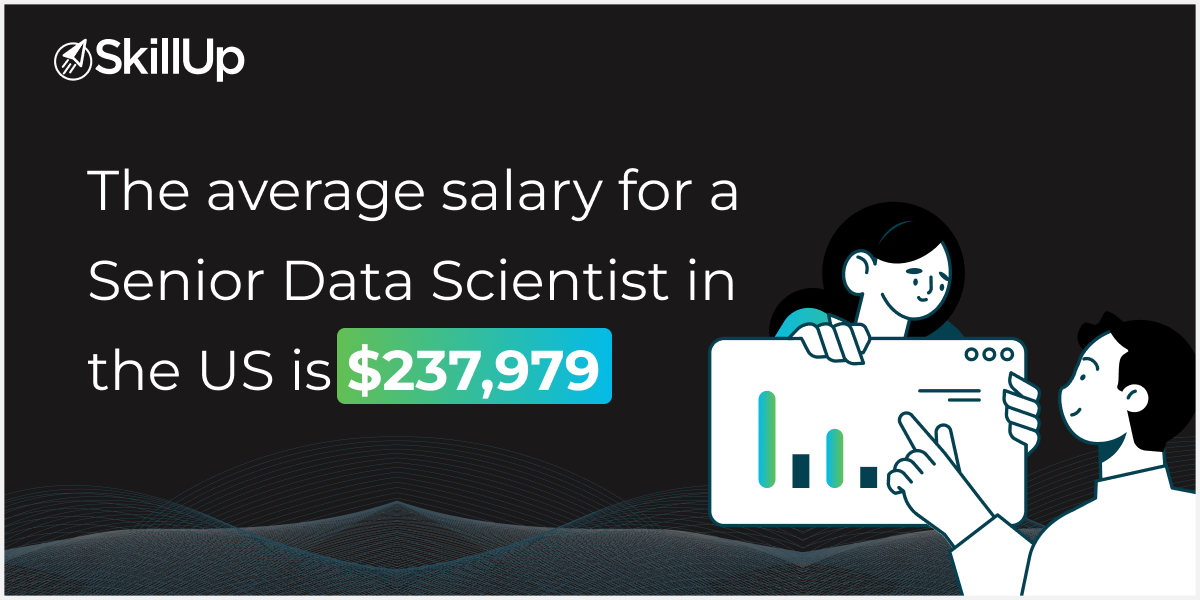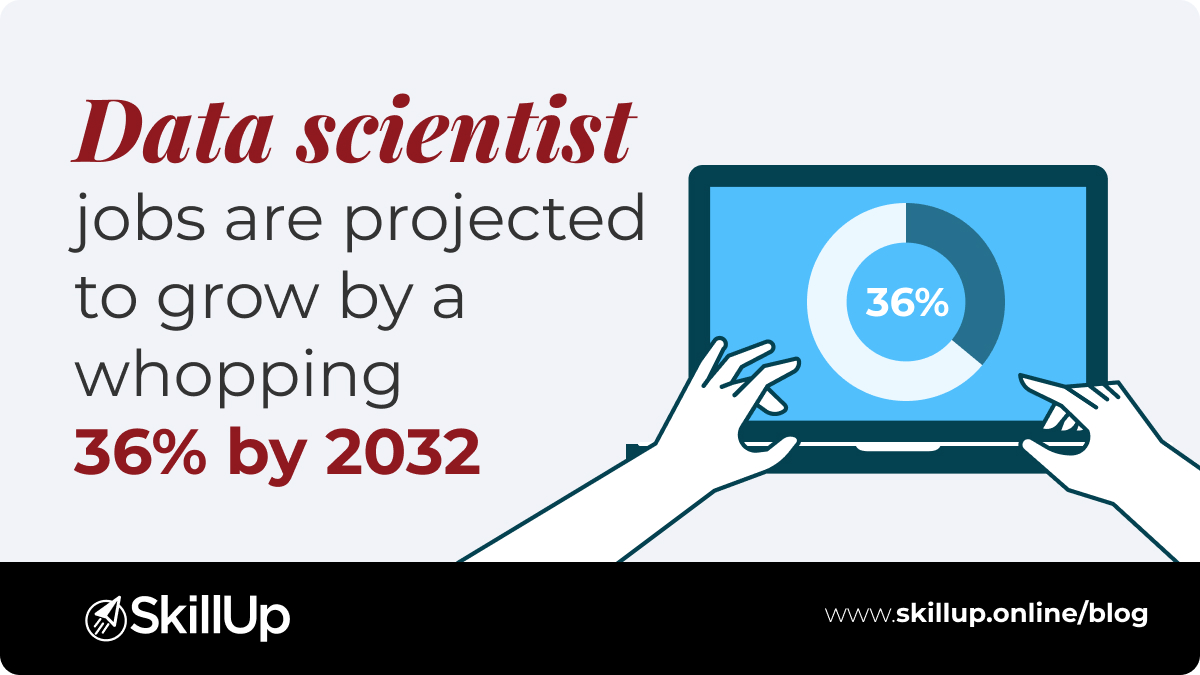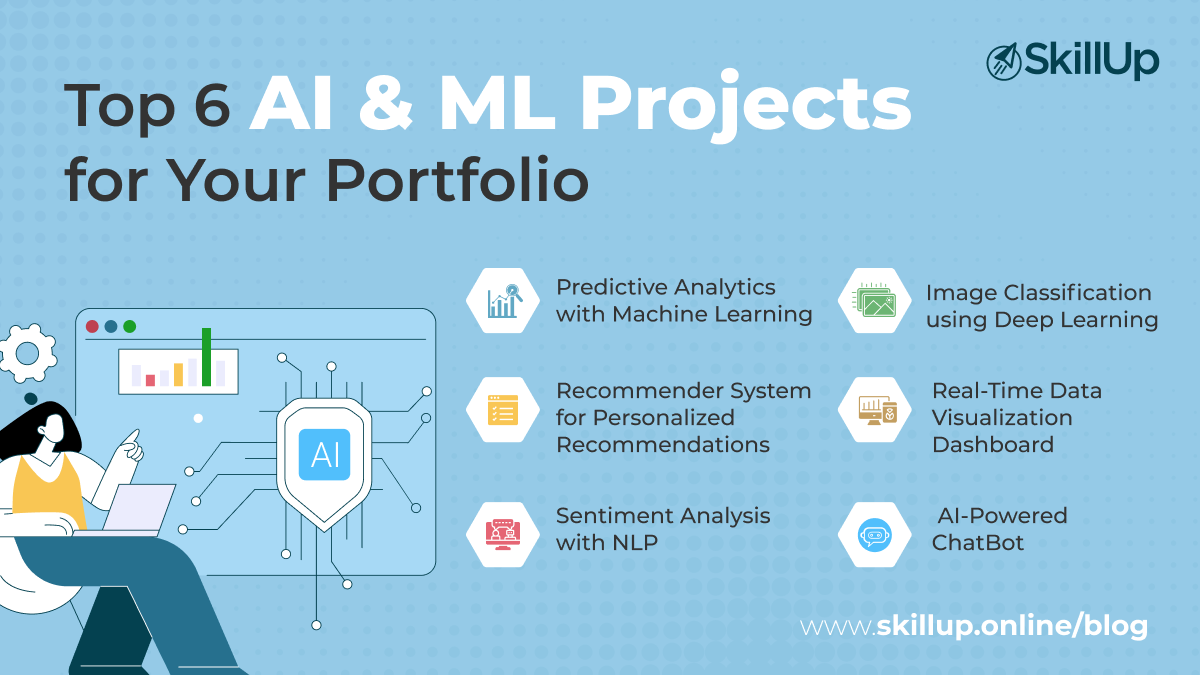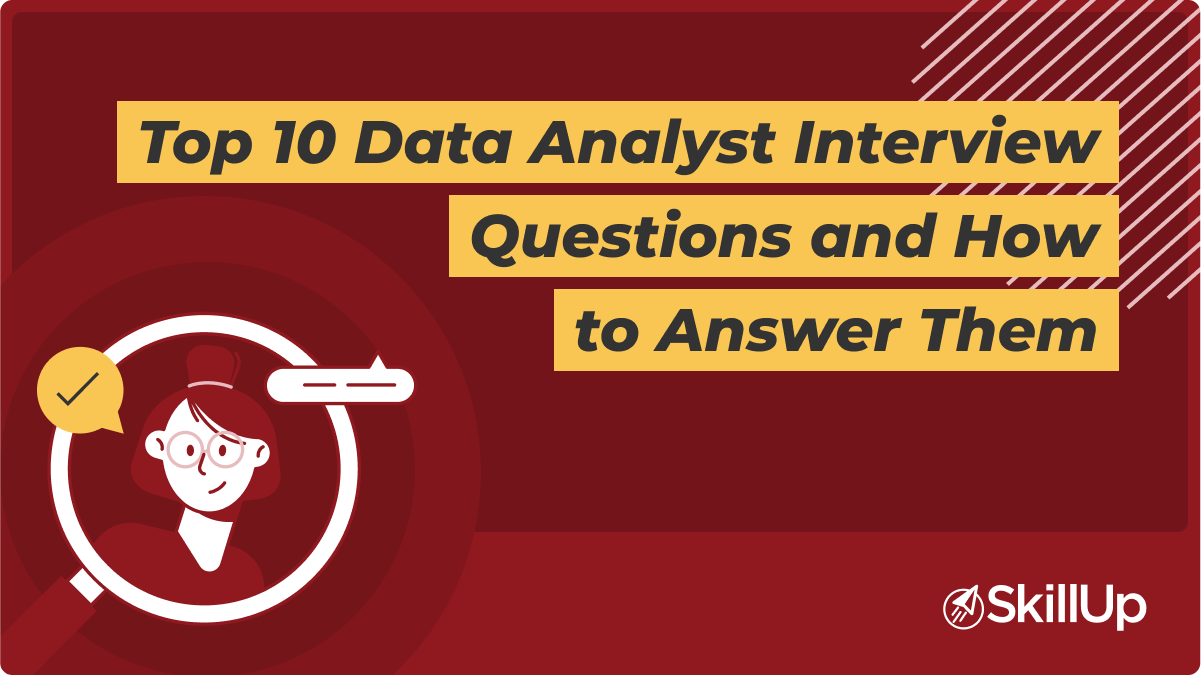Want to stand out in the world of data science? Pairing your data science skills with AI expertise is your secret weapon. This combination of skills will not only open doors for exciting career opportunities but will also pave the way for career growth and a much higher salary.
According to Indeed, along with programming, mathematics, and data visualization, AI and machine learning are in the top 10 critical skills needed for a successful career in data science.
This means when you have both data science skills and AI skills on your resume, you can catch the eye of an employer quickly and gain access to better entry-level jobs.
But which entry-level job could you pitch for? And what lies ahead once you’ve chosen? Let’s look at three distinct career pathways that take you to the top.
Climbing from Entry-Level to Director of Analytics
If you’re aiming for a strategic leadership role, one of these three career paths could be for you. Each one focuses on gradually climbing the corporate ladder, starting from a junior position and moving towards high-level management roles. The pathways are perfect for those who want to shape the analytics strategy and lead data-driven decision-making in an organization.
Path 1: Kickstart Your Career as a Junior Business Analyst
There are different entry-level job roles through which you can get started in data science.
Start Out as Junior Business Analyst
One such job role is of a junior business analyst. The roles and responsibilities primarily revolve around collecting data and solving business puzzles. You’ll gather requirements, create reports, and flex those analytical muscles. Plus, with the right skills, you can enjoy an exciting starting salary of around $70,921 per year.
Make Career Progress as a Senior Business Analyst
With some experience as a junior business analyst under your belt, you can then level up to a more senior business analyst role. Now, you’re not just solving puzzles but predicting the future. You’re identifying business opportunities and optimizing processes, all while your paycheck is climbing to around $101,726 annually. Here, AI tools have become your sidekick, helping you uncover trends and insights that were previously invisible.
Step Up to Become a Data Architect
Next, as your experience starts to stack up, you will become eligible for a data architect job role. This is where you’ll design the blueprint for your company’s data fortress. You’ll earn about $113,406 annually for setting up and managing the data infrastructure. Your expertise will ensure that data flows smoothly and securely, with AI-driven systems enhancing efficiency at every turn.
Flourish as a Data Scientist
After a few years of experience as a data architect, the next thing you know, you could be a data scientist. With a salary bump to $123,255, you’ll use machine learning and AI to extract insights from complex datasets. Your predictions and models will drive strategic decisions, and you’ll be a critical asset to your team.
Extend Your Reach as a Senior Data Scientist
Climbing higher, you could then become a senior data scientist. Leading projects and mentoring juniors, you’ll push the boundaries of data science, earning approximately $237,979 per year. You’ll innovate with AI, developing new methods and models that enhance your company’s capabilities.
Reach the Pinnacle as Director of Analytics
Finally, you could reach the summit as Director of Analytics. With a yearly salary of up to $241,764 plus benefits, you’ll oversee the entire analytics strategy. Your vision will guide the company’s data-driven culture, ensuring AI is seamlessly integrated to drive success.
Path 2: Progressing from Data Analyst to Director of Analytics
If you enjoy diving deep into data and uncovering insights, this path is for you. It starts with hands-on data analysis and progresses through roles that involve handling big data and predictive modeling. This career trajectory emphasizes deep analytical skills and technical expertise, perfect for those who love working directly with data.
Junior Data Analyst
The average entry-level salary for a junior data analys is around $68,924 per year. As a junior data analyst, you’ll be the go-to person for data collection and basic analysis. You’ll create reports and visualizations, making data accessible and understandable for your team.
Data Analyst
Stepping up to data analyst, your responsibilities will grow. Earning around $78,322 per year, you’ll tackle more complex analyses and predictive modeling. AI tools will have become your new best friend, automating data processes and unlocking deeper insights.
Big Data Engineer
After a few years of experience as a data analyst and some broadening of your skills to include big data, you could be eligible for a promotion as a big data engineer. You’ll earn approximately $148,813 and work with cutting-edge technologies like Hadoop and Spark. Plus, you’ll use your AI skills to handle massive datasets with ease, ensuring your systems are robust and efficient.
After that, your career path could converge with Path 1, where you transition to a data scientist job role, then to senior data scientist and finally hold the position of the Director of Analytics.
Advancing from Data Engineer to Higher Positions
If you come from a software development or database management background, then this pathway offers a smooth transition into data science. It focuses on the infrastructure side of data, perfect for those who enjoy designing and managing data systems. This path emphasizes the importance of a solid technical foundation to support advanced data and AI applications.
Data Engineer
For someone who already has a few years of experience as a software developer or similar profiles, it gets quite easy to step into data science. You can either slide in as a junior data engineer, or skip the entry-level job roles altogether and go straight in as a data engineer.
With a salary of around $102,588 per year, you’ll design systems for collecting, storing, and analyzing data. You’ll work closely with data scientists, ensuring your infrastructure supports advanced data and AI applications.
Database Engineer
Next, you may also build some database skills, ensuring you have a well-rounded skillset. As a database engineer, you’ll be earning around $118,246 per year. Your job will primarily revolve around managing databases to ensure performance, security, and reliability. Your AI skills will come in handy for optimizing database management and handling large data volumes efficiently.
And then after that, you could perhaps you could, once again, converge with Path 1 to transition to becoming a data scientist, then a senior data scientist, and finally the Director of Analytics.
So, What Will Be Your Next Steps?
As you can see, mastering data science and AI skills over time will enable you to transition through roles that not only offer financial rewards but also significantly impact your organization. From supporting business decisions as a junior analyst to leading analytics strategies as a director, the key lies in pairing popular skills together to become indispensable to any organization.
A successful career requires the ability to embrace challenges, celebrate milestones, and enable your data science and AI expertise to take you along a career path that’s not just successful, but also incredibly fulfilling. Remember that your journey isn’t just about numbers and algorithms—it’s also about making a tangible difference in the world of technology.
If you would like to know more about how you can build AI and data science skills for a high-flying data science career, contact our Learner Support Team at [email protected]. They will be more than happy to guide you on your next steps.
SkillUp Online
